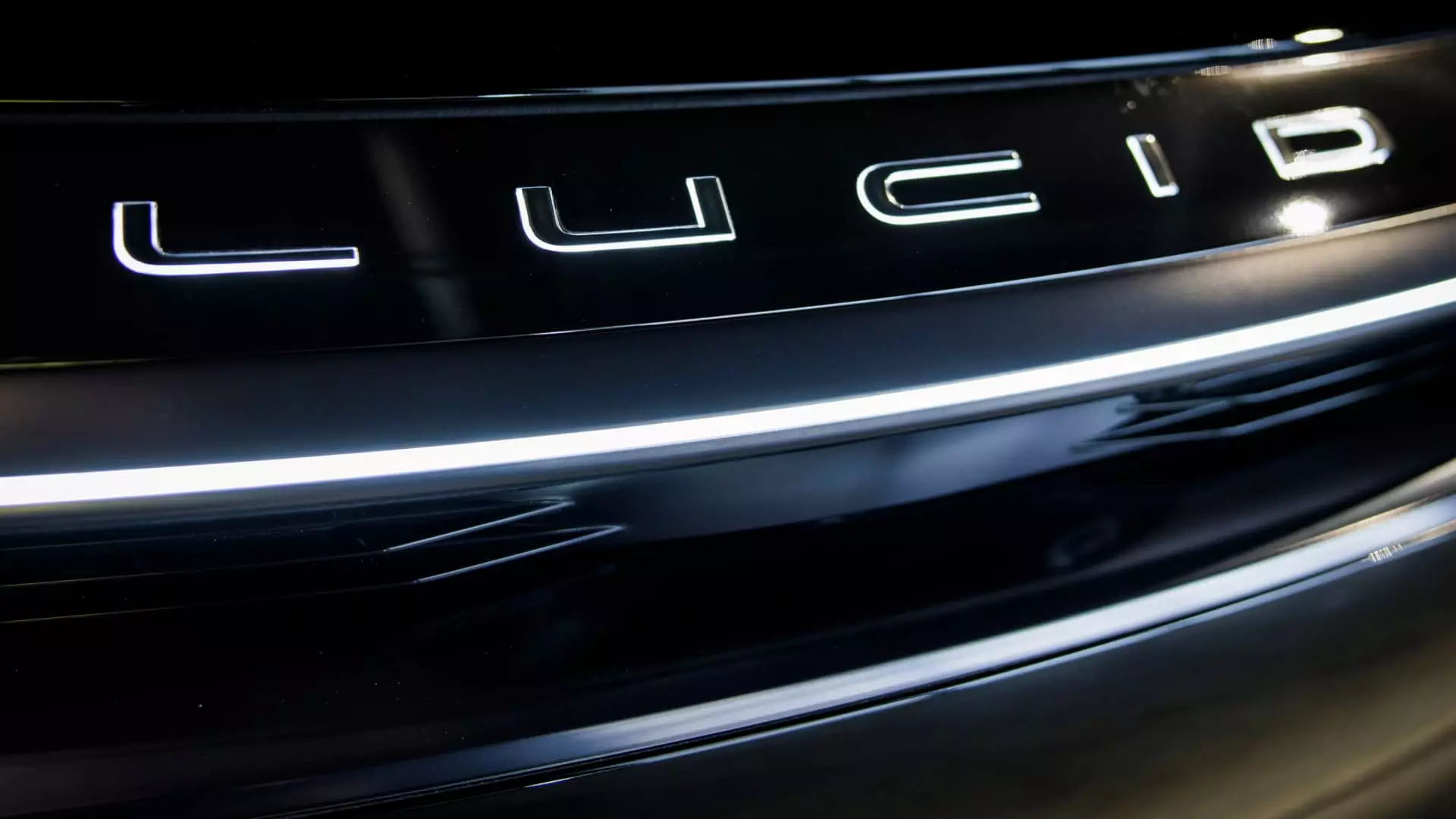Lucid Group’s recent financial report reveals a sobering reality: the company is struggling to meet even modest expectations amidst a swift decline in investor confidence. Once heralded as a major innovator in the electric vehicle space, Lucid’s lowered production targets and mounting losses underscore the volatility and unpredictability that dominates this industry. Despite lofty aspirations, the company’s inability to sustain rapid growth exposes the broader fragility of ambitious EV startups trying to carve out a niche in an increasingly competitive market.
As Lucid’s interim CEO Marc Winterhoff candidly admits, the current year has been filled with more surprises than anyone could have anticipated. This humility underscores a harsh truth—pioneering in the EV space is riddled with unforeseen hurdles, from supply chain disruptions to market hesitations. While Wall Street was prepared for a strong comeback, what they received instead was a costly reality check. The company’s revised forecast of 18,000 to 20,000 vehicles for the year—not meeting initial optimism—mirrors the broader struggles that many newer entrants face: sustainability of growth in a sector that is heavily influenced by policy, consumer sentiment, and macroeconomic factors.
Investor reaction was swift; Lucid’s shares tumbled by over 7% in after-hours trading, signaling widespread disillusionment. This decline reflects a growing skepticism about the company’s ability to translate future promises into tangible results. It also casts shadows over the potential of premium electric vehicles to become mainstream, especially when even a company with solid backing and lofty ambitions cannot escape the economic realities of production setbacks, high costs, and fluctuating demand.
Financial Woes and Strategic Flaws Expose Vulnerability
Lucid’s recent quarterly performance paints a bleak picture. The automaker reported a net loss of $855 million—more than last year—highlighting how expensive it is to build and grow a new automotive brand in the EV era. Despite rallying with hopes of innovation, Lucid’s expenses rose by roughly 7.5%, reaching over a billion dollars. Excluding exceptional costs, the adjusted loss per share remains substantial, undermining confidence in its profitability prospects.
The firm’s cash reserves, though seemingly substantial at $4.86 billion, are not invulnerable. It suggests a company still heavily reliant on external investments and strategic partnerships to sustain its operations. The recent partnership with Uber and the projected deployment of thousands of robotaxis are ambitious moves, but they appear more like desperate attempts to find a foothold than sustainable business strategies. The company’s focus on brand-building efforts, including star-studded advertising campaigns, underscores how tough it is for Lucid to differentiate itself purely through innovation when consumer interest shifts toward more affordable alternatives like hybrids.
The slow pace of Gravity SUV production exemplifies operational challenges. Despite high hopes, supply chain issues and production bottlenecks hinder its ability to ramp up manufacturing—an essential step for financial stability. The struggle to meet delivery expectations amid sluggish demand for premium EVs raises questions about the long-term viability of such investments. It seems the EV market may not be the goldmine many expected, especially given political shifts that threaten lucrative incentives meant to stimulate growth.
The Broader Impacts and Future Uncertainties
Government policy shifts further compound these challenges. The anticipated withdrawal of substantial tax credits after September 30 signals a shift in market dynamics. Consumers, who are already hesitant due to affordability concerns, may find electric vehicles less attractive without financial incentives, and companies like Lucid could face their toughest period yet.
The industry’s trajectory reveals a sobering lesson: technological innovation alone cannot guarantee business success. Market readiness, cost competitiveness, and supportive policies are equally critical. Lucid’s current situation is illustrative of the broader skepticism surrounding startups that overpromise and underdeliver. Their ambitious growth plans are increasingly out of reach in a climate marked by economic caution and geopolitical instability. It’s a moment of reflection for the EV sector: bold visions must be tempered with realistic assessments of the obstacles that lie ahead, especially for companies that are still in their infancy in terms of scale and operational maturity.
In a landscape saturated with competition from giants like Tesla and legacy automakers pivoting aggressively toward electrification, Lucid’s struggles are emblematic of the harsh truth—this market favors resilience, operational excellence, and adaptability over lofty ambitions. The company’s financial strain and production delays signify that even the most promising EV startups risk becoming cautionary tales if they chase growth too aggressively without establishing solid fundamentals. As investor confidence wanes and political support wanes alongside, Lucid’s future hangs precariously in the balance.

